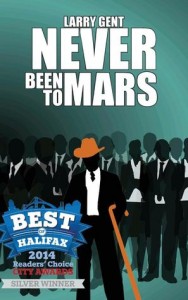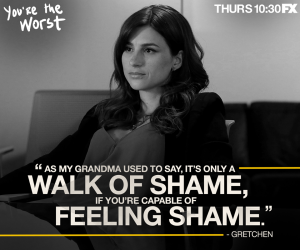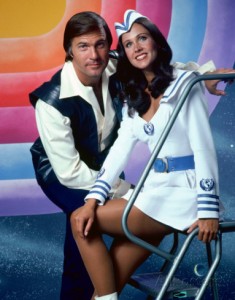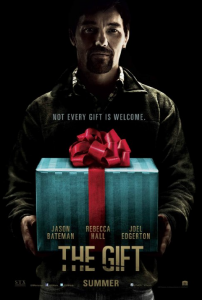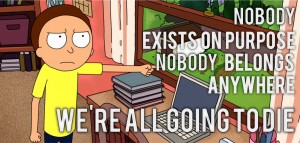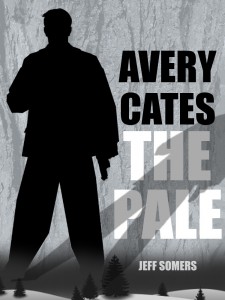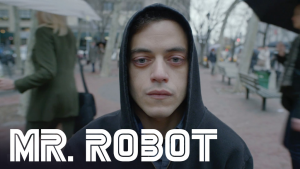POB Adventures
Back when The Duchess and I moved in together (when I still put out a print zine), I got myself a PO Box here in Hoboken. At first she was puzzled; The Duchess has always regarded me as far too lazy to conduct a successful adulterous relationship, so she couldn’t figure why I would need a separate mailing address. I told her the truth: The Zine generated a lot of seriously random, seriously weird correspondence. Back in those halcyon days when The Inner Swine was being mailed all over the world by the thousands, I got some weird-ass shit in the PO Box all the time. I figured The Duchess didn’t want the sort of people who made zines and wrote ten-page letters about them (so, basically, me) to know her home address, and once she saw some of the stuff I hauled home from the PO Box, she heartily agreed, and to this day ranks it as one of the Five Good Decisions Jeff Has Ever Made (#1, naturally, is marrying The Duchess).
(Of course, I also used to get tiny sums of cash there as well as folks sent me anywhere from $2 to $50 for single issues, lifetime subscriptions, and other zine-related stuff, which was sort of great)
Today, the PO Box is a desolate wasteland, because I’ve stopped putting out the zine. In fact, the weird/cool correspondence dried up alarmingly quickly once I stopped mailing out the zine. But every now and then I get treats there. Today was one of those days. Here’s what I got.
A signed copy of Never Been to Mars by Larry Gent. Larry and I have corresponded a few times as he tries to lure me to various events, and he was kind enough to send me a signed copy of his new novel. Here’s the BCC:
Benedict hasn’t been the same since he returned home from Iraq. He’d seen horrifying things, had his leg pumped full of shrapnel and watched friends vanish before his very eyes. To make matters worse he returned home to find he’d developed psychic visions that he can’t control.
Now he lives his life alone in his house, hobbling to and fro on a cane, doing little else but watching endless streams of TV and movies. He doesn’t want to talk to people, he doesn’t want to see anybody; he just wants to be left alone with his TV until reality develops a laugh track.
But when his nephew goes missing, and the FBI starts calling it a kidnapping, Ben hobbles into action and uses the powers he loathes to save his family and find himself in a seedy world of other with powers, child kidnappings and murderous celebrities.
He already misses his TV.
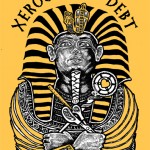 A copy of Xerography Debt #37. Full disclosure, I write a column for this zine-review zine (with the nifty title It Means Its Wank), so I get a contributor’s copy, and am naturally not very objective about its value. Basically, XD has been a mainstay of the zine scene for a long time, and it’s a great place to start if you’re at all curious about the many, many self-published DIY publications that fall under the banner of “zine.”
A copy of Xerography Debt #37. Full disclosure, I write a column for this zine-review zine (with the nifty title It Means Its Wank), so I get a contributor’s copy, and am naturally not very objective about its value. Basically, XD has been a mainstay of the zine scene for a long time, and it’s a great place to start if you’re at all curious about the many, many self-published DIY publications that fall under the banner of “zine.” 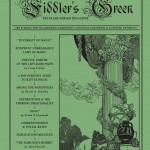 There are columns, as I mentioned, from folks with some connection to the zine world, as well as a plethora of reviews of zines of all kinds. That means every issue offers you a glimpse of hundreds of interesting, weird things you might otherwise never know about. Which would be sad. Also, I write a column, have I mentioned that? Worth the price of admission alone.
There are columns, as I mentioned, from folks with some connection to the zine world, as well as a plethora of reviews of zines of all kinds. That means every issue offers you a glimpse of hundreds of interesting, weird things you might otherwise never know about. Which would be sad. Also, I write a column, have I mentioned that? Worth the price of admission alone.
A copy of Fiddler’s Green, a pamphlet/magazine published “occasionally” by Wonderella, with a focus on “art and magic.” It’s truly a unique publication, beautifully designed and printed and ideal for languid afternoons spent day drinking and imagining you’re living another life.
There was also a freelance check in the POB, which I used to purchase this

